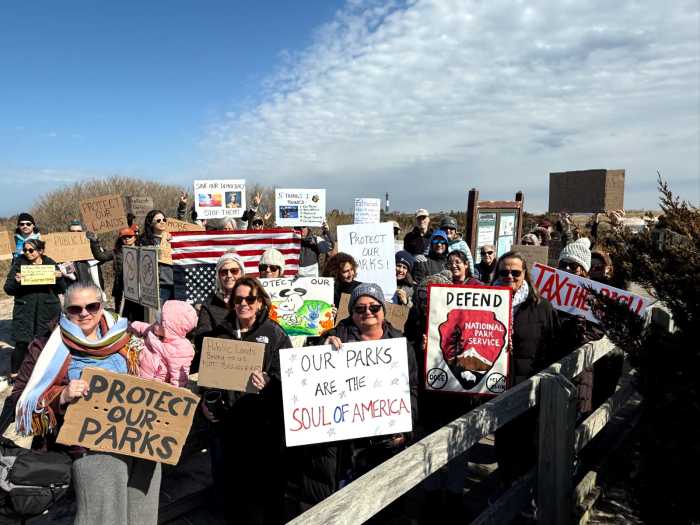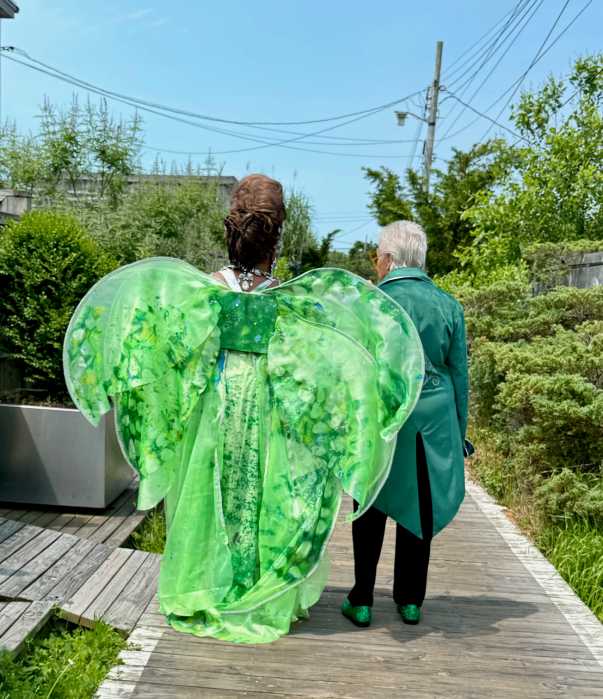
By Timothy Bolger ~ The abundance of natural beauty and peacefulness on Fire Island in winter is usually experienced by just a few brave souls, but when the coronavirus hit, that isolation became a hot commodity.New York City residents fleeing the pandemic’s epicenter during the first wave in March 2020 flocked to the beach – whether it was their second home or a rental – despite warnings from local officials that resources are scarce in the off-season. That was a tradeoff that many were willing to make to avoid the virus.“When we came out in April people were not eager to see anyone from the city, was my impression,” said Kelly Becker-Smith, who moved with her husband and two kids from Manhattan to Seaview amid the stay-at-home orders. “We didn’t leave our house for the first 14 days because we didn’t want to introduce anything to this island.”At the time, Ocean Beach Mayor James Mallott had warned people to “think long and hard about your decision to come here.” Suffolk County, Village of Seaview and Fire Island Ferries officials issued similar statements during that period of widespread uncertainty.There are typically about 400 off-season residents on the island, with that number swelling to more than 20,000 in the summer. It’s unclear exactly how many city residents came out during the early period of the pandemic, but it was enough that some restaurants and markets reopened for the season early to accommodate the added residents.For Becker-Smith, a 41-year-old immigration attorney whose family had already recovered from COVID-19 by the time they moved, it was a much-needed change of scenery from living across the street from a hospital that saw a parade of morgue vehicles in and out.The fact that they closed on a house in April after years in the market turned out to be fortuitous timing, but the difficulty of off-season life quickly became evident, especially in a cottage that’s not winterized and is heated with a wood-burning fireplace. Instead of ordering ready-to-eat meals to be delivered via Seamless or buying fresh fruit from street vendors, the couple got a crash course in cooking every meal at home and leaned on neighbors with driving permits to help get groceries. When she got bit by a dog, she had to go to the post office to get evaluated by Postmistress Dale Wyckoff, who’s also the Ocean Beach EMT chief, who sent Becker-Smith on a ferry to the mainland for treatment.As a Maine native who is familiar with the downsides of living in a small town when the tourists leave, she was reluctant at first to make the move. But she and her family found sweet spots. While last summer proved lonely, on Tumbleweed Tuesday helpful neighbors came out of the woodwork, knocking on doors, offering help.“People were so, so kind,” she said. “Strangers would come up to me and say, ‘Hey, I heard you’re new here, I heard you have kids, I know you don’t have a driving permit, if you ever have any sort of emergency any time of night, call me and I’ll drive you whenever you need to go.’ Which was unbelievably nice.”Her two children took to being among the new kids at the Woodhull School, where her son’s combined third- and fourth-grade class has 12 students, as opposed to the one grade in his city school having 36 students. Not to mention the freedom of bicycling around town with a new group of friends, or the playground playdates for her kindergartener.The off-season wasn’t for everyone, however. Philip Orchin moved his family out to their Ocean Beach home in August so his two kids could attend school in person instead of remotely, but the 71-year-old travel industry professional said he moved back to the city in June.“I would not like to redo the season,” he said, citing the limited resources, reduced ferry schedule, and high home heating bills as causes for concern. “I think I’m a city boy at heart.”Becker-Smith isn’t sure what her next move will be. While her family has taken a shine to off-season life, what she and banker husband’s jobs will require of them when their offices reopen remains to be seen. The remote working that made it possible for them to live here may not last.“My office is hoping to continue a hybrid model, so I’m hopeful that I can stay,” she said. “My husband’s job … they’re a little more stringent about people having butts in their seats, so we’re waiting to see how that plays out. But as of right now we’re hoping to stay here next year. And we’ll do a better job of insulating those windows.”























